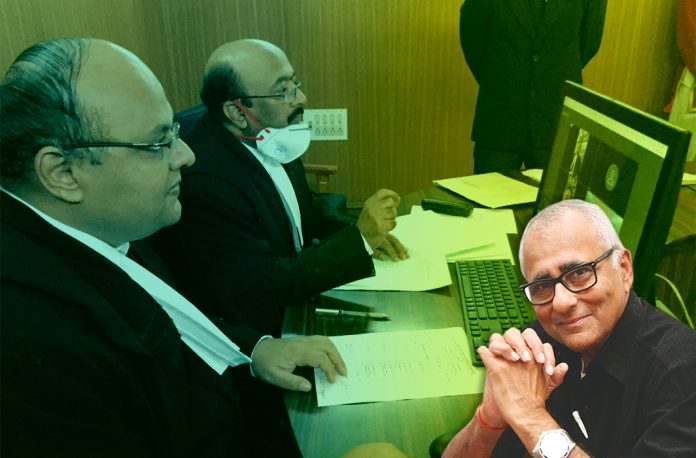During the past few weeks, India Legal’s editors have focussed their energies on generating analytical and look-ahead stories on the delivery of justice when all judicial systems have been turned topsy-turvy by the turbulence generated by the corona pandemic. Indian courts—the most crowded of public venues, next only to railway stations—make social distancing impossible. So they have remained closed. But that does not mean that the portals of justice have been slammed shut in the faces of litigants seeking succour and relief.
Necessity being the mother of invention, Indian courts, like their sister institutions in countries governed by the rule of law and modern jurisprudence, have been adapting by resorting to virtual trials and hearings, digitisation of rosters, cause lists and case files and video-conferencing. There is no choice.
As Chief Justice SA Bobde elegantly summed up what is becoming the new normal for the judiciary, the pandemic has forced a rethink on how to function and what is essential in the judicial process.
He stated: “The real threat came in March and I am happy that the Supreme Court was one of the first institutions to announce that it will not be open in a usual way and function in a restricted manner. This period has provided a compulsory training to prepare for a new working environment. There is no looking back. We will have to change the mindset regarding the way we look at court proceedings. This transition was not easy and it was difficult to deviate from the time honouring manner of functioning. This was the conflict between old and the new style of working.”
In related stories on this subject published in previous issues of the magazine, our analysts and legal correspondents outlined specific caveats and challenges. Virtual courts are by no means a panacea: “They present a variety of challenges and limitations, including data security and privacy concerns, the need for digitised files and the threat of reduced accountability. Perhaps the greatest challenge to virtual courts is the lack of emotional and intangible sensory connection enabled by physical proximity.”
The transition is by no means smooth. But hurdles are no reason to delay seeking alternative pathways. The rule of law cannot be allowed to succumb to a pandemic. The adjudicating presence of the courts is the lifeblood of democracy.
Our analysts are of the opinion that virtual courts could help the disposal rates of cases. These will reduce as judicial officers and clerks learn new technologies which ensure social distancing. Court clerks will have to undergo intensive training—from video-conferencing, soft storage of information and evidence to registry maintenance.
One of our writers predicts: “Daily hearings will shrink as judges try to manage their dockets and keep out those cases which do not require the personal presence of clients as in civil cases. This may become problematic as most clients and advocates are geared towards personal presence and arguments.”
Advocate Preeti Ahluwalia writes in this week’s cover story (read here) that the coronavirus “will turbo-charge the legal industry’s transformation. It will propel law into the digital age and reshape its landscape”.
The entire legal ecosystem will be affected—consumers, providers, academies and the judicial system, she predicts. “Digital transformation has been a C-Suite priority for years, but the legal industry has hardly taken notice of it and is unprepared. Coronavirus will change that.”
The most important thing law is learning from this pandemic is the need to have alternative means and methods for doing jobs. The legal sector “has generally been very slow to adopt new technology that can save time and money and has tenaciously clung to traditional ways of doing things.
“Even after the global financial crisis, law firms adjusted at the margins—furloughs, reduced rack rates and internal cost-cutting measures. This time, things will be different; the changes will be broad, deep and enduring.”


